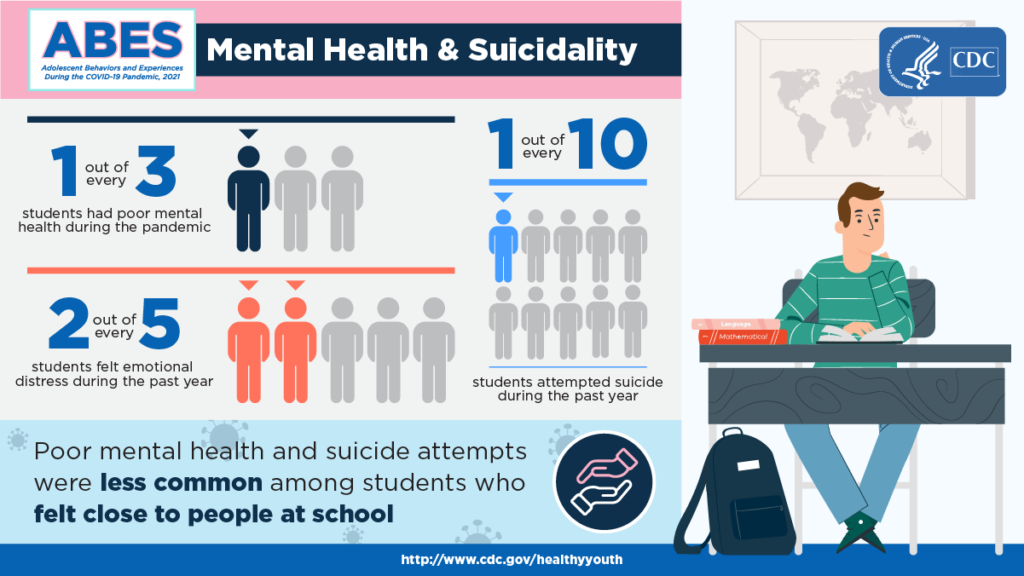Vicarious Trauma Definition
Vicarious trauma, also known as secondary traumatic stress or compassion fatigue, refers to the psychological and emotional impact experienced by individuals who are repeatedly exposed to the trauma experiences of others. It occurs when individuals indirectly absorb the trauma narratives and distress of those they work with or care for, leading to a profound and often long-lasting impact on their own well-being.
While not directly experiencing the trauma themselves, the constant exposure to others’ pain can result in significant changes in their thoughts, emotions, beliefs, and behaviors, ultimately affecting their overall mental health and ability to function. Understanding and addressing vicarious trauma is essential for those in helping professions and anyone who regularly supports or empathizes with individuals who have experienced trauma.
Vicarious Trauma Symptoms
Symptoms of vicarious trauma can manifest in various ways and may differ from person to person. The following are common signs and symptoms associated with vicarious trauma:
- Intrusive Thoughts and Memories: Individuals may experience intrusive thoughts or vivid imagery related to the traumatic experiences of others. These thoughts can be distressing and difficult to control.
- Emotional Distress: this condition often leads to emotional upheaval, including sadness, anxiety, fear, anger, or helplessness. Individuals may become more emotionally sensitive and easily triggered.
- Empathy Fatigue: Excessive exposure to trauma narratives can diminish empathy capacity. Individuals may feel emotionally exhausted, detached, or numb, struggling to connect with others on an emotional level.
- Physical Symptoms: this condition can manifest physically, with symptoms such as fatigue, headaches, gastrointestinal issues, changes in appetite, and sleep disturbances.
- Cognitive Changes: Difficulties with concentration, memory, and decision-making may arise due to vicarious trauma. Individuals may find it challenging to focus on tasks or make decisions effectively.
- Changes in Worldview: Exposure to trauma can shift an individual’s beliefs and worldview. They may question their safety or lose trust in others, perceiving the world as more dangerous.
- Hypervigilance: A heightened state of alertness and hypervigilance may develop, where individuals are constantly on guard and anticipate potential harm or threats.

Skip To:
Learn More:
- Obsessive Compulsive Personality Disorder & OCD
- DBT Therapy, Conditions to Treat, The 5 Functions of DBT, Benefits & Mental Health Treatment
- What are Obsessive Thoughts? Their Connection With OCD
- CBT Therapy for Mental Health Disorders, Process, Efficacy, Techniques, Types & CBT for Co-Occurring Disorders
- Co-occurring disorders, Diagnosis, Risk Factors, Mental Health, Substance Abuse & Dual Diagnosis Rehab Washington
- We Level Up WA Mental Health Center
- How to help someone with Drug Addiction and Depression, Dual Diagnosis Rehab Washington
- 25 Signs of Narcissistic Parents
- Avoidance Behaviors: Individuals may attempt to cope with this condition by avoiding reminders of trauma or situations that may trigger distressing emotions.
- Relationship Strain: this condition can impact personal relationships, leading to difficulties connecting with others, increased conflicts, or withdrawal from social interactions.
- Decreased Self-Care: Those experiencing this condition may neglect self-care activities, such as exercise, hobbies, or leisure time, due to a sense of overwhelm or guilty.
Vicarious Trauma Facts
What Is Vicarious Trauma?
This condition is the emotional and psychological impact experienced by individuals exposed to the trauma of others, resulting in symptoms similar to those of direct trauma.
Vicarious Trauma Symptoms
This condition includes intrusive thoughts, emotional distress, empathy fatigue, physical symptoms, cognitive changes, changes in worldview, hypervigilance, avoidance behaviors, relationship strain, and decreased self-care.
Vicarious Trauma Treatments
- Self-Care and Stress Management: Engaging in self-care practices, such as exercise, relaxation techniques, maintaining a healthy lifestyle, and setting boundaries, can help reduce the impact of this condition.
- Psychoeducation: Learning about this condition and its effects can provide individuals with a better understanding of their experiences, normalize their symptoms, and empower them to seek appropriate support.
- Supportive Relationships: Building and nurturing supportive relationships with colleagues, friends, and family can provide emotional support and understanding.
End the Emotional Pain. Get Your Life Back.
Feeling Depressed, Anxious or Struggling with Mental Health Illness? Get Safe Comfortable Mental Health Dual Diagnosis High-Quality Therapy From Counselors That Care. Begin Your Recovery Now.
Hotline: (509) 348-4077

Vicarious Trauma Statistics
This section delves into the often-overlooked realm of vicarious trauma and sheds light on its prevalence through compelling statistics. These numbers unveil the hidden toll that witnessing and supporting others through trauma can have on individuals. By understanding the scope of vicarious trauma and its impact on various professions and caregivers, we can recognize the urgency of addressing this vital aspect of emotional well-being.
85%
Approximately 16% to 85% of professionals in the fields of healthcare, social work, and mental health experience symptoms of vicarious trauma during their careers.
Source: Journal of Traumatic Stress
71%
Among child welfare workers, an alarming 71% reported experiencing symptoms of vicarious trauma, such as emotional exhaustion and intrusive thoughts.
Source: National Child Traumatic Stress Network
75%
Up to 75% of lawyers working with trauma-exposed clients, such as survivors of domestic violence or child abuse, reported significant vicarious trauma symptoms.
Source: American Bar Association
Get Help. Get Better. Get Your Life Back.
Searching for Accredited Dual Diagnosis Mental Health Centers Near You?
Even if therapy failed previously, or are in the middle of a difficult crisis, we stand ready to support you. Our trusted behavioral health specialists will not give up on you. When you feel ready or just want someone to speak to about counseling alternatives to change your life call us. Even if we cannot assist you, we will lead you to wherever you can get support. There is no obligation. Call our hotline today.
FREE 24/7 Dual Diagnosis Mental Health Services Hotline
Vicarious Trauma Vs Secondary Trauma
Vicarious Trauma:
This condition refers to the emotional and psychological impact experienced by individuals who are indirectly exposed to the trauma experiences of others. It occurs from repeatedly hearing or witnessing traumatic stories, images, or events, which can lead to significant changes in thoughts, emotions, and beliefs.
Vicarious trauma typically affects professionals in helping and caregiving roles, such as therapists, social workers, healthcare providers, and individuals who support trauma survivors. The focus is on the indirect absorption of trauma through empathic engagement with others.
Secondary Trauma:
Secondary trauma, also known as compassion fatigue, is a term used to describe the negative emotional and physical consequences experienced by individuals who have a close relationship with someone directly affected by trauma. It can occur among family members, partners, friends, or caregivers who witness or support individuals who have experienced trauma. Secondary trauma involves experiencing symptoms similar to those of the primary trauma survivor, often resulting from prolonged exposure to the survivor’s trauma narratives or behaviors. The focus is on the direct impact on individuals in close relationships with trauma survivors.
In summary, vicarious trauma primarily affects professionals who indirectly experience trauma through their work, while secondary trauma relates to the impact on individuals in close personal relationships with trauma survivors. Both concepts highlight the importance of understanding and addressing the emotional toll of trauma exposure, whether it occurs directly or indirectly.
Compassion Fatigue Vs Vicarious Trauma
Compassion fatigue is the emotional and physical exhaustion that can occur when individuals consistently provide care and support to others suffering. It often affects caregivers, healthcare professionals, and other helping professionals who are deeply involved in the well-being of others. A depletion of energy characterizes compassion fatigue, reduced empathy, and an overall sense of burnout and overwhelm due to the demands and challenges of providing care.
In summary, compassion fatigue focuses on the exhaustion and depletion that caregivers experience due to providing care, while vicarious trauma centers on the emotional and psychological impact resulting from indirect exposure to others’ trauma experiences. Both concepts underscore the importance of self-care, support, and recognizing the need for resiliency in professions and roles that involve caring for others.
First-class Facilities & Amenities
World-class High-Quality Mental Health Services & Behaviroal Health Substance Abuse Treatment
Rehab Centers TourRenowned Mental Health Centers. Serene Private Facilities. Inpatient Rehab Programs Vary.
Mental Health Helpline: (509) 348-4077Proven recovery success experience, backed by a Team w/ History of:
15+
Years of Unified Experience
100s
5-Star Reviews Across Our Centers
10K
Recovery Success Stories Across Our Network
- Low Patient to Therapist Ratio
- Comprehensive Dual-Diagnosis Treatment
- Complimentary Family & Alumni Programs
- Coaching, Recovery & Development Events
- Comfortable Onsite Medical Detox Center
Coping With Vicarious Trauma
Coping with vicarious trauma is essential to maintain well-being and support others effectively. Here are some strategies to help cope with vicarious trauma:
- Self-Care: Prioritize self-care activities that promote physical, emotional, and mental well-being. Engage in regular exercise, practice relaxation techniques, maintain a healthy lifestyle, and engage in activities that bring you joy and rejuvenation.
- Establish Boundaries: Set clear boundaries between work and personal life to prevent constant exposure to trauma. Create designated time and space for self-care, leisure activities, and disconnecting from work-related stressors.

- Seek Support: Reach out to supportive colleagues, friends, or family members who can provide a listening ear and understanding. Sharing your experiences with others who can empathize can help alleviate feelings of isolation and promote emotional healing.
- Professional Supervision: Regularly engage in professional supervision or consultation with a qualified mental health professional. Supervision provides a safe space to process emotions, discuss challenging cases, and receive guidance on managing vicarious trauma.
- Mindfulness and Relaxation Techniques: Practice mindfulness meditation, deep breathing exercises, or other relaxation techniques to reduce stress, increase self-awareness, and promote emotional balance.
- Regular Self-Reflection: Engage in self-reflection activities, such as journaling or therapy, to explore and process your own emotional reactions to the trauma narratives you encounter. This can help gain insights, identify triggers, and develop healthy coping strategies.
- Healthy Boundaries with Clients: Establishing professional boundaries with clients or those you support is crucial. This includes setting limits on emotional investment and being aware of your capacity to provide care while maintaining empathy and compassion.
- Engage in Hobbies and Activities: Dedicate time to activities that bring you joy and help you disconnect from work-related stress. Engaging in hobbies, pursuing creative outlets, or participating in enjoyable activities can relieve fulfillment and stress.
- Self-Compassion: Practice self-compassion and be gentle with yourself. Recognize that experiencing vicarious trauma is a natural response to your challenging work, and acknowledge your efforts and dedication to helping others.
- Seek Professional Help: If your symptoms persist or significantly impact your daily life, consider seeking support from a mental health professional with expertise in trauma. They can provide specialized interventions to address and manage vicarious trauma effectively.
Coping with vicarious trauma is an ongoing process, and it’s important to tailor coping strategies to your needs. Prioritizing your own well-being ensures that you can continue providing compassionate care and support to others while safeguarding your emotional health.
World-class, Accredited, 5-Star Reviewed, Effective Mental Health Dual Diagnosis Programs. Complete Integrated Inpatient Rehab with Free Post Discharge Therapy Planning.
Hotline: (509) 348-4077End the Emotional Pain Rollercoaster. Gain Stability & Happiness Through Recovery Treatment. Start Mental Health Counseling Today. Get Free No-obligation Guidance by Behaviroal Health Specialists Who Understand Mental Health Recovery.
Popular Vicarious Trauma FAQs
-
What is the vicarious trauma meaning in short?
Vicarious trauma, in short, refers to the emotional and psychological impact experienced by individuals who indirectly absorb and internalize the trauma narratives and distress of others. It occurs when individuals repeatedly hear or witness the traumatic experiences of others, leading to significant changes in their thoughts, emotions, beliefs, and behaviors.
8 Steps & Tips for Maintaining Your Mental Wellbeing Informative Video
Video Script
We Level Up WA is an advanced mental health center that offers customized therapy programs to meet the unique needs of each individual. Our highly trained professionals deliver personalized, evidence-based treatments to address specific challenges and goals. With state-of-the-art amenities, including outdoor relaxation spaces, our facility promotes holistic healing.
We strongly emphasize creating a compassionate and supportive environment, empowering clients to actively participate in their recovery journey. At We Level Up WA, we aim to foster lasting mental well-being and guide individuals toward personal growth and transformation. Take a crucial step towards a brighter future by choosing our center, where you’ll receive cutting-edge treatments and nurturing care.
Experience Transformative Recovery at the We Level Up Treatment Center.
See our authentic success stories. Get inspired.
Get the help you deserve.



Start a New Life
Begin with a free call to a behavioral health treatment advisor. Learn more about our dual-diagnosis programs. The We Level Up treatment center network delivers recovery programs that vary by each treatment facility. Call to learn more.
- Personalized Care
- Caring Accountable Staff
- World-class Amenities
- Licensed & Accredited
- Renowned w/ 5-Star Reviews
We’ll Call You
Search We Level Up WA / Vicarious Trauma & Resources
Sources
- National Institute of Mental Health (NIMH): Trauma page – https://www.nimh.nih.gov/health/topics/trauma/index.shtml
- Substance Abuse and Mental Health Services Administration (SAMHSA): Trauma and Violence page – https://www.samhsa.gov/trauma-violence
- Centers for Disease Control and Prevention (CDC): Adverse Childhood Experiences (ACEs) page – https://www.cdc.gov/violenceprevention/aces/index.html
- Office for Victims of Crime (OVC): Trauma page – https://www.ovc.gov/assist-victims/Understanding-Victimization/Trauma
- National Child Traumatic Stress Network (NCTSN) – https://www.nctsn.org/
- National Domestic Violence Hotline – https://www.thehotline.org/
- Office on Women’s Health (OWH): Trauma and Violence page – https://www.womenshealth.gov/mental-health/trauma-and-violence
- National Institute on Drug Abuse (NIDA): Trauma, Violence, and Substance Use page – https://www.drugabuse.gov/drug-topics/comorbidity/trauma-violence
- Office of Justice Programs (OJP): Office for Victims of Crime – https://www.ojp.gov/ovc
- National Center for PTSD (Department of Veterans Affairs) – https://www.ptsd.va.gov/